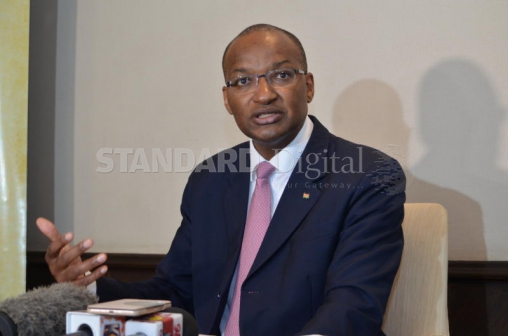×
The Standard e-Paper
Kenya’s Boldest Voice

The interest rate cap on loans will soon be reversed to allow the market to determine the pricing of credit, the Central Bank governor has said.
Speaking to the press after meeting investors, mostly in the equity and fixed income segment, Dr Patrick Njoroge said banks will be handed back a free hand in pricing the cost of loans since the impact has been 'problematic'.